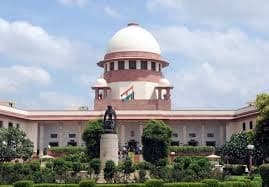
On 22 September 2025, the Supreme Court of India remarked that “the time has come to decriminalise defamation,” reigniting a long-standing debate on the balance between free speech and protection of reputation.
This observation, made while hearing The Wire’s plea against a criminal defamation case, has raised hopes among journalists, activists, and free speech advocates who see the existing law as a tool of harassment.
The Current Legal Position
At present, Section 356 of the Bharatiya Nyaya Sanhita (BNS), 2023—which replaced Sections 499 and 500 of the IPC—criminalises defamation. Conviction may lead to imprisonment up to two years, a fine, or both. In 2016, the Supreme Court in Subramanian Swamy vs. Union of India upheld the constitutionality of criminal defamation, declaring it a “reasonable restriction” on free speech under Article 19(2), since reputation is part of Article 21 (right to life and dignity).
The Case for Decriminalisation
Freedom of Speech: Criminal defamation has a chilling effect on public debate. Fear of jail discourages journalists, writers, and ordinary citizens from speaking truth to power.
Civil Remedies Exist: Defamation can be adequately addressed through civil suits, compensation, or injunctions, without criminal liability.
International Practice: Many democracies, including the U.K. and the U.S., have moved towards civil defamation, reserving criminal sanctions only for extreme speech (like hate crimes).
Misuse of Law: Politicians, corporations, and powerful individuals often file criminal defamation cases to intimidate critics. Long trials themselves become punishment.
The Case Against Decriminalisation
Reputation as a Fundamental Right: Supporters of the current law argue that a person’s reputation is integral to dignity and should have strong protection.
Deterrence Value: The possibility of imprisonment acts as a deterrent against reckless or malicious falsehoods.
Civil Law Limitations: Civil defamation suits are expensive and time-consuming, and damages may not adequately restore a person’s reputation once tarnished.
The Road Ahead
The Supreme Court’s observation does not, by itself, strike down the law. Either the Court must revisit its 2016 judgment, or Parliament must amend the BNS to decriminalise defamation.
If decriminalised, defamation would move entirely into the civil domain, potentially strengthening press freedom and public debate. Yet, the challenge will be to ensure that individuals still have effective means to protect their reputation.
FAQs on Decriminalising Defamation in India
1. What does decriminalising defamation mean?
Decriminalising defamation means removing criminal penalties like imprisonment for defamatory statements. Defamation cases would only be handled through civil law, usually involving fines or compensation.
2. What is the current law on criminal defamation in India?
Under the Bharatiya Nyaya Sanhita (BNS), 2023, Section 356 criminalises defamation. A person found guilty can face up to two years in prison, a fine, or both.
3. What did the Supreme Court recently say about defamation?
On 22 September 2025, the Supreme Court observed that “the time has come to decriminalise defamation” while hearing a plea by The Wire. However, this is an observation, not yet a binding judgment.
4. Has the Supreme Court upheld criminal defamation before?
Yes. In 2016, in the Subramanian Swamy vs. Union of India case, the Court upheld the constitutionality of criminal defamation under Articles 19(2) and 21 of the Constitution.
5. Why do some people want to decriminalise defamation?
Critics argue that criminal defamation:
Creates a chilling effect on free speech.
Is often misused by powerful individuals to silence journalists and critics.
Is unnecessary since civil remedies (compensation, injunctions) already exist.
6. Why do others want to keep criminal defamation?
Supporters believe:
Reputation is part of dignity and deserves strong protection.
The threat of criminal punishment deters malicious falsehoods.
Civil suits alone may not be effective in protecting reputations.
7. What happens if India decriminalises defamation?
If decriminalised, defamation will only be pursued in civil courts, reducing fear of jail for journalists and citizens, but still allowing people to seek damages for harm to their reputation.




